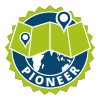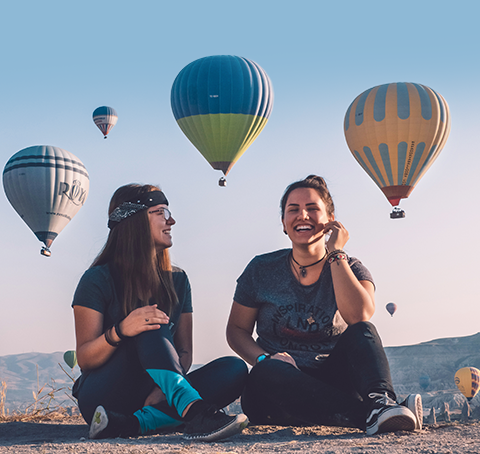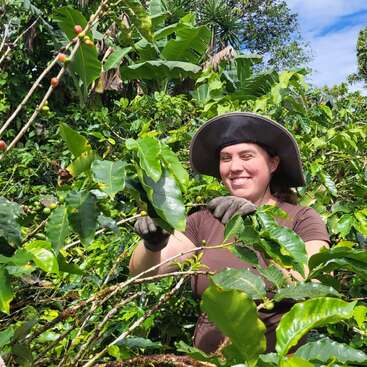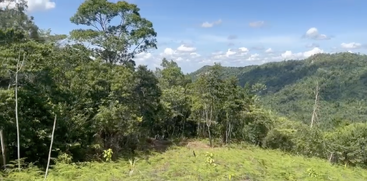Profile information

Host rating
100 %

Last replied
11 Feb 2026

Reply rate
100.0 %
Usually responds within 2 days

Feedback
8

Email verified
Country info
Badges (3)




Find your perfect host
Details

Description
We are inviting you to come and stay and help with the building, development and running of this project, consisting of a 3 acre smallholding, a 1.5 acre orchard, a 10 acre parcel with coconut grove and fishpond, and 212 acres of pristine rainforest in a remote area of Belize which we have been dedicating ourselves to since 2021. You can find below the bullet points for the overall vision of the project.
For now, we need people to help with the smallholding and the orchard, and the daily running of the place, including gardening, planting trees, some farming, some building, care of the animals (many chickens, ducks, geese, turkeys, some sheep, some goats, two milking cows). Over the next few months, we are planning to do some more building (two more wooden cabins on stilts, a clay oven from local clay, and the further development of our 40-ft container and porch, where our solar system, electrics and fibre-optic Internet connection are located). If you have any kind of skills with sustainable, simple building, that is a preferred bonus. Generally, you need to be comfortable living primitively.
Our location is very remote - when you come here by vehicle , you have to cross the creek four times, and in the rainy season (mainly October to December) there can be a few days when the creek is high and you cannot cross. We are about 70 minutes drive from the nearest big town.
Another consequence of the location is that it doesn't make much sense to come just for a few days. It takes the best part of a day to get here, it takes a few days to get acclimatised and to become familiar with our routines and all the practicalities, and then you haven't even started learning what you came for. To understand regenerative principles to the point that you can apply them for yourself will take a while, because the underlying thinking and paradigm is so different from what we have been taught. So if you are serious about wanting to learn, you should be prepared to come for about two weeks at least. Another aspect of our set-up and the remote location is that we are not suited for people who want frequent access to civilisation, social life, or affordable tourism. It is remote, and there aren't many people around, other than the few locals who come to work with us,
We have now started working on the remote rainforest parcel which will be the location for the future retreat, therapy and therapy teaching centre. We have cleared some land and finished building a cabin there, which will need furnishing and making homely - it would make a brilliant project for a carpenter who wants to build homemade furniture from scratch with amazing lumber. It's the genuine rainforest experience - there is nobody there, and it's incredible beautiful and peaceful. The creek is just a few steps down the slope, with cool pure precious water and the most amazing swimming hole.
As it is the tropics, daylight hours are precious and the day starts early, around 6.00. We have a local helpers visiting most days who take care of food preparation, but you would obviously be welcome to join in with that (harvesting and preparation, including sourdough bread, yoghurt, kombucha, etc). Some of the time, you would be doing tasks together with some of the local helpers.
The main aims, objectives and principles for this holistic, regenerative project are:
• Protecting rainforest flora and fauna, land and water (under threat of logging for development and cattle ranching)
• Protecting wildlife and endangered species (nurseries for rare tropical trees and medicinal plants, breeding butterflies, protecting birds, etc)
• Building & running an Eco-Retreat Centre and Refuge (designed using sacred geometry and BioGeometry), with workshops and training courses in integral psychotherapy, couple work and group facilitation, as well as courses on regenerative farming, sustainable building, holistic wellbeing and healthy food, as a stepping stone towards ...
• Building one or more small regenerative eco-hamlets with a Geoship dome (geoship.io) as the centre-piece and
• Sustainable architecture with natural, local materials (adobe clay, slate, lime stone, local wood & bamboo, industrial hemp) for additional accommodation
• Creating organic/regenerative agroforestry systems, possibly carbon credits (planting at least 10 trees for every tree felled)
• Developing a network of organic farming & permaculture projects, with consistent and comprehensive application of regenerative principles throughout the eco-system, including milpa (traditional Mayan farming), fish ponds, apiaries; syntropic agroforestry and bio-intensive food production
• Using the various diverse approaches of regenerative gardening, farming & agriculture to partner with the microbiology (SoilFoodWeb) in and above the soil, and in and around plants and animals, to deepen the soil and improve its vitality and fertility, and improve fungal diversity to sequester more carbon into the soil
• Setting up a community lab of citizen scientists, using regenerative agriculture microscopy, helping farmers in the region develop their own approach to regenerative and sustainable production, to make the whole region free from agricultural poisons (non-toxic Cayo)
• Creating regional food-security networks of producers and consumers, growing and distributing healthy, nutrient-dense, organic food, ultimately aiming at Belize as a beacon country for regenerative agriculture
• Creating an extended EMF 'white zone' without man-made electromagnetic radiation (which currently could become one of the largest zones on the planet), creating a region which can serve as a scientific control area and non-toxic reference point
• Attention to water management across the landscape, to preserve watersheds, prevent erosion and demonstrate the power of the regional water cycle for conservation, regeneration and fertility
• Observing, stewarding and managing land and water in line with anthroposophical understandings of living water (flowforms)
• Maintaining, reclaiming and re-discovering indigenous Mayan traditions and rainforest remedies & healing (medicine trails, community medicine)
• Initiating local community projects (oriented towards future independent governance) generating financial and food security and wealth for impoverished local partners by working
We are serious about turning this part of the planet (the whole upper reaches of a secluded, remote valley), into a fertile, self-sustaining, non-toxic, abundant little paradise, that can serve as an inspiration for others, and for our future, using the principles of organic, regenerative agriculture and agroforestry. I have been an organic gardener for 35 years, but I have now been studying the soil food web for a couple of years, and I have learnt so much. I am inspired by partnering with nature and the soil biology. I am setting up a citizens' lab with a microscope (for sampling and investigating soil microbiology), and have had Permaculture consultants help me make a plan for the next few years, for which I am inviting your participation and help to manifest that - surprisingly, we are ahead of schedule by several months, mainly due to the support of local people who are wanting to work with us. We are aiming to make this an inspiring beacon project for the rest of the country (which is pretty lost in chemical farming, with some notable, inspiring and helpful exceptions). We have made considerable progress improving our soil and establishing fertile raised beds which are now producing , mainly for our own consumption and bartering with the neighbours.
You will have the possibility to learn the whole spectrum of organic regenerative agriculture and agroforestry (Elaine Ingham Soil Food Web, Matt Powers, Richard Perkins, Chris Trump (Korean Natural Farming), and how we are learning from people like Christine Jones, Gabe Brown, Joel Salatin, John Kempf and Tom Dykstra to grow healthy, living soil capable of producing healthy plants to feed healthy animals and humans). We are aiming to make this a holistic fairly self-sufficient ecosystem, which will produce abundant food for our guests when we eventually set up and run the eco-retreat and therapy centre.
There are many activities and small projects which you can dedicate yourself to, according to your own preferences depending on what you want to learn, e.g. looking after the animals and helping them multiply, market gardening, composting, biochar, bokashi, breeding indigenous microbes, fruit trees, soil sampling and microscopy, and a variety of projects ranging from tilapia farming to vanilla production.
We have one cabin with a double bed and a hammock. We have another cabin (with one single and one double bedroom), a large tent and we are planning further buildings, including a compost toilet (you are welcome to help and learn about that, too). We have high standards for our diet, way above the rest of the population around us, with imported organic staples from the US and our own fresh organic produce, high quality grass-fed dairy (milk, yoghurt, cheese) and meat, partly from our own animals, partly from neighbours around us.
As our property is off-grid, supply of electricity is limited and so is use of technology. However, we do have Internet via fibre-optic cable - probably the best connection in the region. We live quite simply and primitively, and you need to be comfortable with proximity to animals. The place is hot and humid, but you do have the creek to cool off, just 25 steps down a slope. Some volunteers have found it difficult to live without constant engagement with their phones or other addictive tendencies of civilisation - we are mindful and compassionate when these difficulties arise (just coming here and being here is quite a holistic detox challenge), but you may want to consider such issues in advance.
Types of help and learning opportunities
Help with Eco Projects
Gardening
DIY and building projects
Animal Care
Farmstay help
General Maintenance

Interests
Self developmentPlant careGardeningCooking & foodAnimalsYoga / WellnessNatureHiking
UN sustainability goals this host is trying to achieve

Cultural exchange and learning opportunities
You will have the possibility to learn the whole spectrum of organic regenerative agriculture (Elaine Ingham soil food web, Matt Powers, Chris Trump (Korean Natural Farming)), agroforestry, as applied to both animals and plants. We are aiming to make this a holistic fairly self-sufficient ecosystem, which will produce abundant food to eventually set up and run an eco-retreat and therapy centre.

Help
There are many activities and small projects which you can dedicate yourself to, according to your own preferences depending on what you want to learn, e.g. looking after the animals and helping them multiply , market gardening, composting, fruit trees, soil sampling and microscopy, and a variety of projects ranging from tilapia farming to vanilla production.

Languages
Languages spoken
German: Fluent
English: Fluent
Spanish: IntermediateThis host offers a language exchange
This host has indicated that they are interested in sharing their own language or learning a new language.
You can contact them directly for more information.
Accommodation
We have a cabin with a double bed and a hammock. We are in the process of building more accommodation and further buildings, including a compost toilet (you are welcome to help and learned about that, too). We have high standards for our diet, way above the rest of the population around us, with imported organic staples from the US and our own fresh organic produce, high quality grass-fed dairy and meat. There will be three meals a day.

A little more information

Internet access

Limited internet access

We have pets

We are smokers

Can host families

Can host digital nomads
This host has indicated that they love having digital nomads stay.

Space for parking camper vans
This host can provide space for campervans.

Can possibly accept pets
This host has said they are willing to accept those travelling with a pet.

How many Workawayers can stay?
More than two

My animals / pets
We have three beautiful shepherds, Kai, Mira and Dexter (4 years)
Chat with Workawayers who've visited this host






Feedback (7)
The farm is SUPER off road, so be prepared to either get a pricey car ride there or hitchhike all the way. We gave hitchhiking a try and it worked pretty well.
The accommodation is super basic and rustic, so be prepared to sleep in a wooden… read more
Chat with Workawayers who've visited this host






Feedback
These are extra optional ratings when members leave feedback. The average rating left for each option is displayed.
Accuracy of profile:
(5.0)
Cultural exchange:
(4.5)
Communication:
(5.0)
The farm is SUPER off road, so be prepared to either get a pricey car ride there or hitchhike all the way. We gave hitchhiking a try and it worked pretty well.
The accommodation is super basic and rustic, so be prepared to sleep in a wooden… read more
The place if very isolated and i think the most rural i have ever been, getting there in the back of a truck in the night, trough the jungle and trough 4(!) rivers was an adventure on its… read more
































